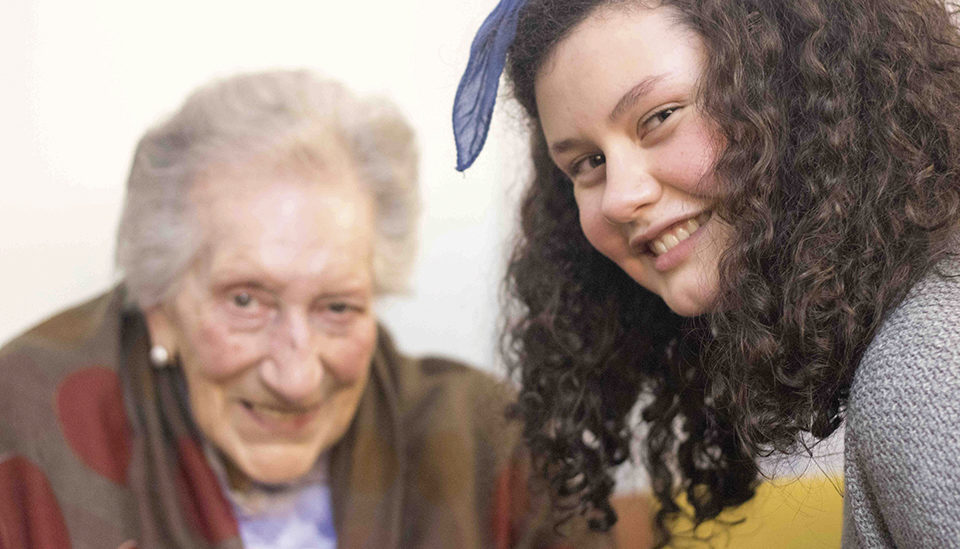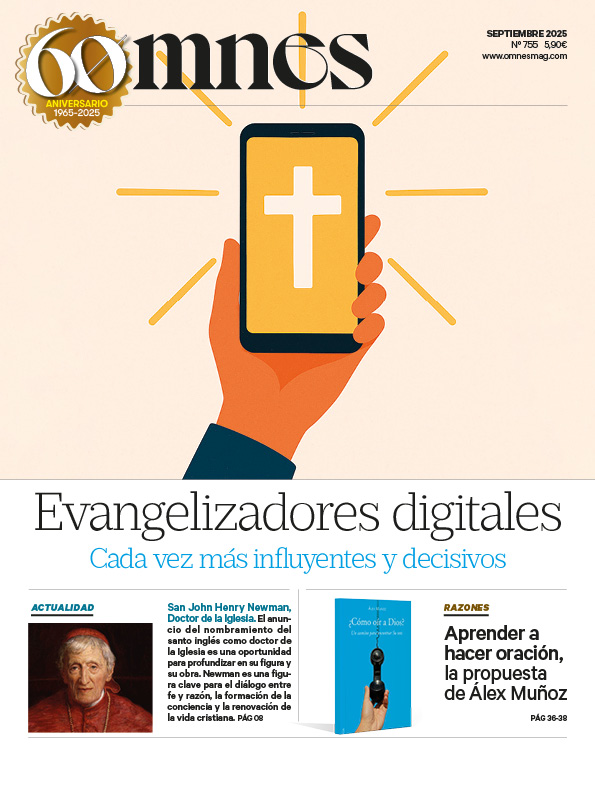The elderly are often regarded with respect but with a certain distance, as if they were a relic of times past that is back from the past and has nothing to say to today's society. Well, the project Connecting generationsof the Diocese of Orense and cofinanced by the Xunta de Galicia and the Friends of the Barrera Foundationseeks to encourage a series of encounters between adolescents and adults so that they can build bonds of relationship and affection based on experience.
This initiative, which has just celebrated its third edition, offers students in the last years of ESO (Secondary Education) and Bachillerato the opportunity for social volunteering that enriches them as individuals. For the elderly, on the other hand, it gives them the opportunity to be listened to and valued by contributing the most valuable and precious thing they have, which is their own life experience.
In these meetings the words are not carried away by the wind, because with the stories told, the young people are in charge of elaborating a book that gathers the biographical aspects of which they have been made participants. A book that for these adolescents overflows their sometimes narrow horizons and connects them with deep human values that enrich them.
Participants
The first task consists of selecting the students. In order to find the participants, a public contest is held, inviting schools to offer it to students in the 3rd and 4th years of ESO and 1st year of Bachillerato who are willing to spend a few days of social volunteering and who have certain literary skills. The group of seniors is also selected, ranging from immigrants to residents of a nursing home, as well as the grandparents of the students themselves. The intention of the project organizers is that in the next edition the protagonists will be elderly priests.
In order for the activity to achieve the expected results, a limit is placed on participation, so that groups of between ten and twenty young people, and ten and twenty older ones, are managed. Once the selection has been made, the young people are trained in rigorous and well-prepared workshops, which include notions on social volunteering -teaching them to listen or to ask questions- and on literary aspects, such as explaining how to write a biography, the different perspectives to approach the story of a person's life, how to structure the different times or how they can involve themselves in the narration.
In the meetings with the elders, with a snack in between, special care is taken to ensure that everyone is comfortable and happy. The aim is not to make it a mechanical project, but to make it an unforgettable experience, an encounter that destroys any possible initial prejudices of the adolescents towards the elders and facilitates an openness for them to receive the values of which their predecessors are the depositaries. Once the workshops have been given and the first contacts have been made, a draw is made, FIFA-style, in which each young person is matched with an older person. From that point on, the days of meeting and writing up experiences begin.
At the end, the original texts presented by the students are shaped, everything is collected in photographs and on film, and a book is published with all the biographies, the photographs of each of the biographers and biographers and even, sometimes, the illustrations made by the young people themselves. In the final act, in which the families of the young people and the elders are present, the result of the work is presented and the book is given to each one, including a moment to share some experiences.
Impacting examples
"Our goal is to put the exemplary intention at the center, as we seek to make it a path to follow, underlining and making visible the importance of counting on the elderly and valuing them."José Manuel Domínguez Prieto, the director of the Family Institute of the diocese of Orense. "The elderly are not an obstacle but a very rich source of culture and wisdom."he specifies.
The experience of these three editions is that the elderly felt very honored and happy, while the young people experienced a strong emotional and personal impact. "It's exciting to see the sessions of meeting one another."says one of the project participants, "since young people are opened up to panoramas of life experiences, listening to the adventures from the lips of the protagonist himself, and for the elderly it produces a great emotion because they feel that they have many riches to contribute to today's society.".
The success of Connecting Generations has caused the initiative to be replicated in the other dioceses of Galicia, seeking the creation of extraordinary bonds through quality encounters between human groups so far apart in age.
Concrete stories
Those who in one way or another are part of this project point out that the most beautiful and exciting are the concrete stories that happen thanks to these encounters. Stories that uncover an intimacy that was not even suspected. Stories that change lives or that, at least, make us think about what is essential and what is accessory. As an example, here is a reference to two beautiful stories of the enrichment that this type of deeper and more intimate contact with an older person can bring to a young person.
One of these people was an immigrant, a university professor in Venezuela and someone very relevant in the field of culture, married with children. She had to go to Galicia absolutely alone and poor, already widowed, depending on Caritas and having in Venezuela, so far away, her life and her friendships, which cannot leave. In spite of this, she lives her situation happily, with a contagious joy thanks to her Christian faith. This joy in the midst of her precarious life situation shocked her interviewer. "For a young Spaniard, who lives with all the stability provided by an educational and health system, discovering the experience of having had everything and lost everything is something exciting and tremendous, which makes you think again".says Domínguez Prieto. The young man who was lucky enough to meet this old woman ended up crying his eyes out and was unable to write anything on the first day.
Another young man, a science high school student who was very reticent about these meetings, was able to enter into the intimacy of a pensioner who opened unsuspected horizons for him. He came at the invitation of the school, but with no particular enthusiasm. What he did not know is that the person he interviewed was until his retirement one of the world's leading authorities in nuclear physics, someone very simple but who set in motion important nuclear projects all over Europe. Now he is a humble retiree who takes care of his wife with Alzheimer's disease. When the young man discovered who this old man was, who, with such a worldwide authority, dedicated himself to taking care of his wife and found in this his happiness, he suffered a spectacular vocational impact that has conditioned him in a definitive way.
The elderly have a lot to say to this society, although many times with our haste, our superficiality and our technological culture, we forget the beauty of meeting face to face with someone, without screens in between, who has something to tell us to enrich our lives. Initiatives such as Connecting generations show young people the extent to which sharing intimacy with people who have lived through so many experiences can be a great enrichment to their own lives.







